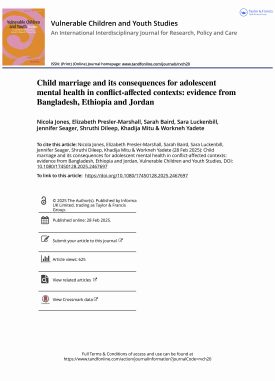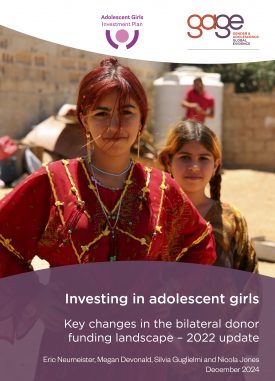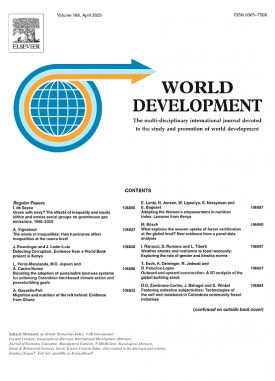In Bangladesh, about two-thirds of young women marry before the legal age of marriage (18 years). Many also become adolescent mothers. The 2015 Bangladesh Bureau of Statistics survey shows that physical and sexual violence are prevalent among ever married women, including the 15–19 age group (Ministry of Planning, 2016). These statistics indicate the need for a comprehensive sexual and reproductive health policy framework and strategy for adolescents in Bangladesh.
To understand the policy context for adolescent health, wellbeing and bodily integrity, we reviewed the National Strategy for Adolescent Health 2017–2030 and its predecessor, the National Adolescent Reproductive Health Strategy 2006. We aimed to: (a) identify the key actors involved in policy formulation; (b) analyse the nature of the contextual shifts that have influenced the policy space; (c) explore the nature of various forms of resistance encountered during the process of drafting the policy; and (d) illustrate some of the implementation challenges encountered. We used a political economy lens to explore these issues, and this note provides a brief summary of our findings.
Suggested citation
Sultan, M. and Nazneen (2018) ‘Policy and legal analysis notes: Bangladesh: a review of the National Strategy for Adolescent Health.’ Policy note. London: Gender and Adolescence: Global Evidence. (https://www.gage.odi.org/publication/policy-and-legal-analysis-notes-bangladesh/)


